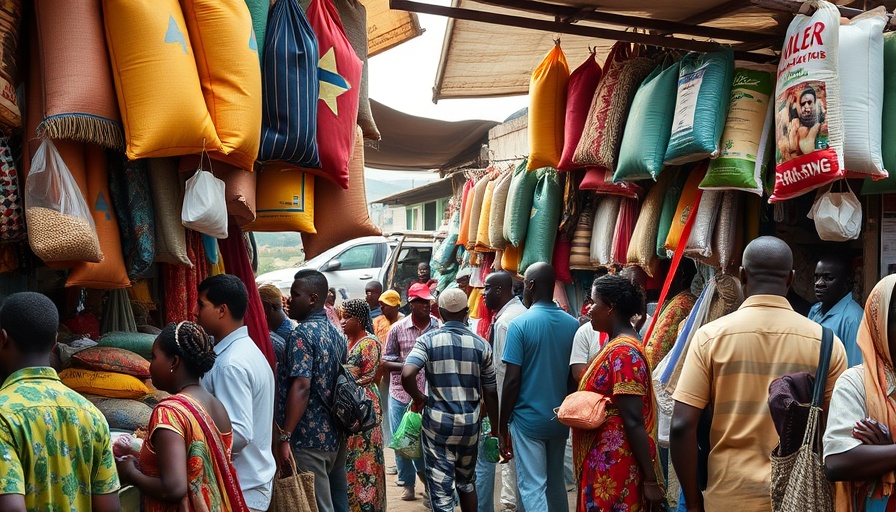
Nigeria's Inflation Rate Eases: A Glimpse of Hope Amid Challenges
As Nigeria navigates through the murky waters of economic reform, a minor reprieve has emerged with the headline inflation rate decreasing for the fourth consecutive month in July. This drop is particularly significant given the tumultuous background of soaring prices that once reached a staggering 28-year high. With the National Bureau of Statistics (NBS) reporting an inflation rate that fell to 21.88%, down from 22.22% the previous month, there’s cautious optimism about the possible stabilization of the economy.
Not Just Numbers: The Human Impact of Inflation
Food inflation, a critical indicator affecting most households, climbed to 22.74% year-on-year, underscoring that even amidst easing headline figures, the cost of living remains a pressing concern for many. Daily essentials continue to pinch the pockets of Nigerian families. Dr. Ngozi Okonjo-Iweala, the Director-General of the World Trade Organization, emphasizes the necessity of supportive measures for those hardest hit by reforms, stating, "we need to grow the economy and put in social safety nets so that people who are feeling the pinch of the reforms can also have some support." This sentiment resonates widely among Nigerians and those involved in trade and commerce who are directly affected by these economic shifts.
Trade Dynamics in an Evolving Economy
For exporters, importers, and e-commerce businesses, navigating the intricacies of Nigeria’s economic landscape is critical. As currency devaluation and subsidy removals trigger price volatility, businesses must adapt to ensure competitiveness. The African Continental Free Trade Area (AfCFTA) presents an opportunity for these sectors to engage in cross-border trade more effectively. However, continued volatility demands that players leverage the digital economy, enabling more streamlined processes and efficiencies.
Future Predictions: What Lies Ahead?
Looking beyond short-term fluctuations, analysts suggest that the rebasing of the Consumer Price Index (CPI) to reflect contemporary consumption patterns may enhance economic policy formulation and aid recovery. However, this requires steadfast government commitment to reform, ensuring that measures contribute not just to economic growth but also to the socioeconomic well-being of citizens.
Taking Action: Engaging with Nigeria's Economic Future
For those engaged in trade and commerce, the ongoing changes in Nigeria's economic policies offer both challenges and opportunities. By staying informed about inflation trends and adapting strategies accordingly, exporters and e-commerce businesses can position themselves for success. Nonetheless, understanding the broader implications of these changes on daily life is crucial as the country strives towards growth and stability.
In a landscape marked by uncertainty yet inevitable change, the ability to pivot and prepare for what lies ahead is vital for stakeholders in Nigeria's evolving economy.
 Add Row
Add Row  Add
Add 




Write A Comment